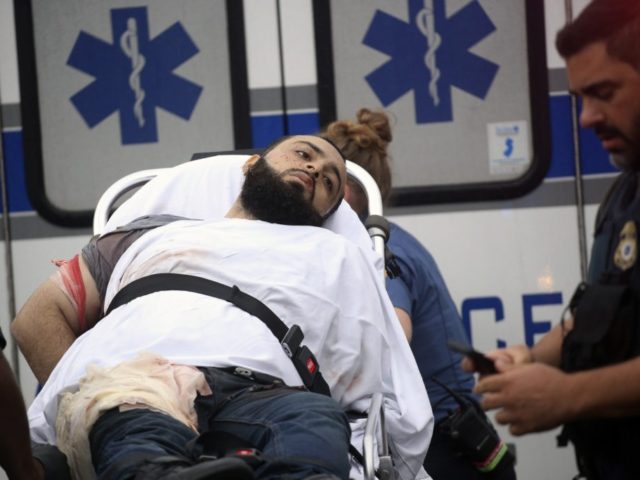The Guardian, citing a Pakistani security source, has confirmed that New York and New Jersey bomber Ahmad Khan Rahami spent time receiving “Islamic education” at a Taliban-linked seminary in Pakistan during his extended stay there.
Rahami, a naturalized U.S. citizen of Afghan descent whose writings strongly indicate a jihadist influence behind his plan to bomb multiple locations in the tri-state area, reportedly attended jihadist lectures and had some involvement to the Taliban community in Quetta, a known terror hotbed in Pakistan.
The Guardian identifies the school in question as the Kaan Kuwa Naqshbandi madrasa in the outskirts of Quetta, which the official noted Rahami may have visited on two separate occasions in which he was in Pakistan – in 2011 and 2013. On one visit, Rahami reportedly stayed for three weeks, indulging in “lectures and Islamic education.” The official revealing the information told The Guardian he felt the government was being overly careful in releasing information regarding Rahami’s time in the country, trying to “hide all the details of his visits to Quetta” instead.
Shortly after his second visit to Pakistan in 2013, Rahami’s father Mohammed reported him to the FBI as a potential terrorist threat. Ahmad Rahami had a fight with his siblings and was charged with stabbing his brother, but those charges were dropped after the family refused to continue on with the case. The FBI investigated Ahmad Rahami but told his father they found no evidence of jihadi radicalism, so the father recanted his complaint. The nature of the domestic dispute in question remains unknown. Mohammed Rahami insists the FBI failed his family, while FBI officials have said that Rahami merely called his son a “terrorist” while providing no evidence or mentioning his reportedly obsessive viewing of jihadi materials online, giving law enforcement little to work with.
Quetta is the capital of Pakistan’s Balochistan region and has a reputation as a Taliban stronghold. Nonetheless, a separate Balochistan official speaking to The Guardian said it was highly unlikely that police would be able to monitor activity like Rahami’s and report it to American officials or act in a way that could have prevented the Chelsea attacks. It is “difficult to know what sort of activity is being conducted by some individuals,” regional government spokesman Anwar-ul-Haq Kakar told the UK newspaper. He cited the failure by FBI and other American law enforcement bodies to identify Rahami as a threat.
Adding to the potential difficulty of identifying Rahami’s visits to the madrasa as potentially radicalizing is the fact that the owner of the madrasa is known as a Sufi Muslim. Sufi Islam has long been regarded as a potential antidote to radical strains of Sunni and Shia Islam, particularly Wahhabism, the fundamentalist Sunni denomination promoted by the government of Saudi Arabia.
The Afghan Taliban has officially denied any involvement with Rahami’s attacks through a spokesman. Al Qaeda and the Islamic State have both remained silent on the attacks in question. The latter appeared to ignore the Rahami bombings in a publication released shortly after that did identify Minnesota stabbing spree perpetrator Dahir Adan as an Islamic State operative.
Rahami planted four different sets of bombs in Seaside Park and Elizabeth, New Jersey, and the Chelsea neighborhood of Manhattan. Only one of the two Chelsea bombs succeeded, injuring 31 people. The Seaside Park bomb detonated but hurt no one, failing to take apart the garbage can Rahami allegedly planted it in, while one of the five Elizabeth explosive devices detonated as a police robot worked to disarm it, injuring no one. The Chelsea bomb caused “millions of dollars” in damage, according to the FBI, including damage to the history Catholic Vincent de Paul building.

COMMENTS
Please let us know if you're having issues with commenting.